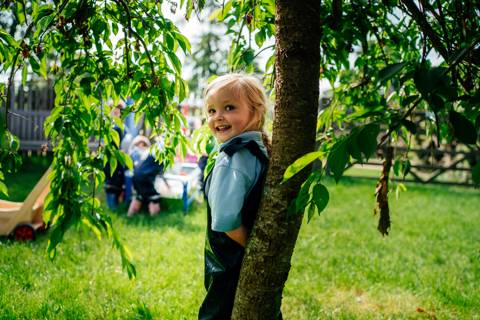02 Oct 2020
Supporting your children through this autumn and winter
BY CLAIRE HOLLY, HEAD OF PRE-PREP AT WALHAMPTON
Although the children are back at school and enjoying learning with their teachers, we are well aware that it feels different for parents this year. Drop-off and pick-up procedures have changed, there are less resources being shared between home and school, and we are all living with the uncertainty of whether we will need to isolate for short or long periods.
I know that some parents are also anxious about how best to support their child emotionally and with their learning. I want to reassure you that you are already teaching your child many of the skills they need, just by being with them. The time your child spends with you and the family is essentially all learning time.
COVID-19 has given us all challenges to deal with, but there are some silver linings if we look for them. With social lives curtailed and work hours changed, there could be an opportunity to reinvest time in your family.
Here are our tips for supporting your child through this autumn and winter:
Our own happiness and emotional well-being are as important as that of our children. Go easy on yourself, if your bucket is empty you cannot give meaningfully to your children. We are juggling a lot right now and perfect is often impossible, doing our best is enough.
Children are barometers of our mood and feelings. It is normal to be feeling the strain at the moment and we must try to show our children how to deal with stress and resolve disagreements in a healthy way.
Changes to our normal routines can be difficult for children who do not understand why we need to do things differently. Every behaviour from our children is a message and is often their way of telling us something. They may be feeling a range of emotions but talking about their feelings and concerns is healthy and will help their development. In school we have been using the book ‘The Colour Monster’ to help the children to identify and regulate their feelings and emotions.
A flexible approach is important for everyone’s sake and sanity – if things are not going according to plan – change direction!
Time spent with our children doesn’t need to be elaborate or take great swathes of time out of our day. The three most important ways to support your child are simply to ‘chat, play and read’ with them. On a car journey you can talk about what you see around you, during bath time you can sing a song, at the weekend try dusting off the board games and try to spend some time each day reading together.
Get outside as much as you can. Even in the rain; it is never the weather, only the clothing. Children are naturally curious and need to explore their world. They do not need expensive toys – there are lots of different everyday objects and natural materials for them to investigate on your doorstep. Collect autumn treasures; acorns, leaves and conkers. Count, describe, investigate and play with them. Observe the changing seasons, play a game of ‘I Spy’ during a walk in the woods.
Make time and space for family mealtimes. Switch the television and other electrical devices off and eat together at a table.
With less of a hurry to be somewhere, use the time to encourage independence. Encourage your child to put their own shoes on, feed themselves using a knife and fork, learn to fasten their coat and perhaps even walk for a while longer without being carried.
Parents often worry that they don’t have the knowledge to support their children with their learning. If you are not sure how you can help, please ask us. We are here to help, and we understand that a strong partnership between home and school helps everyone get it right for your child. However, research shows that you can make a big difference to your child’s progress just by showing an interest in their work and encouraging them. You don’t always need to know the answers!


